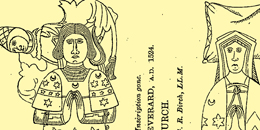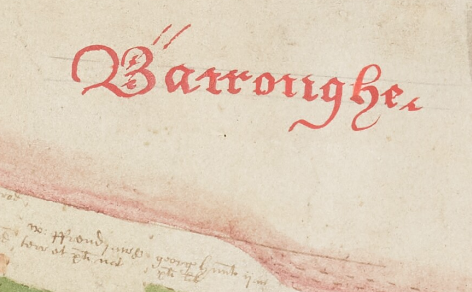David Dymond
We are sad to report that Dr David Dymond, one of our vice-presidents and a giant among the county’s local historians, passed away on 20 August 2021 and will be sorely missed by his many good friends within the SIAH.
Mark Bailey, president of the SIAH, has contributed the following obituary.
David Dymond, native of Devon, President of the Suffolk Records Society and long-time member,officer and Vice President of the Institute, died on 20August in Suffolk, his adopted county. He is, in death as in life, Suffolk’s greatest modern local historian. Indeed, as a Vice-President of the British Association for Local History, David has also been an influential national figure within the wide and fertile field of local history.
David is well-known and exceptionally well-regarded within his adopted county for his teaching to hundreds of adult education classes over five decades. For each new course at a different Suffolk venue he would dig deep into the county record office to generate new resources from that locality, in order to heighten the relevance to and interest of his audience. Then he would proceed to pitch the material adroitly, and steer an uncluttered pathway through both narratives and explanations. He conveyed a passion, excitement and infectious enthusiasm, which brought history to life and spawned various local research groups that outlived his courses and went on to produce some excellent research: his book on the industrial town of Lavenham with Alec Betterton is perhaps the finest example. His teaching ability and his own scholarship also inspired countless individual scholars, some of whom acknowledged their great debt in the Festschrift presented to the great man in the summer of 2020.
David taught and wrote about an extraordinarily wide range of topics across a long chronological span. His prodigious output continued even during the final 12 months of his life when he produced articles for both The Local Historian and our own Proceedings.Often he drew upon material and ideas stimulated by his Suffolk classes. His articles on the camping close (an early form of contact sport), and on the workings of the glebe, in international, peer-reviewed, journals are classic examples, and masterpieces of the local historian’s craft. Together with his good friend Edward Martin, he conceived the idea of an Historical Atlas of Suffolk, which proved so successful that it sold out almost immediately, quickly went into a revised, second, edition, and inspired many other counties to produce their own. Throughout his life, David’s core academic interest lay in ecclesiastical history, represented by his magisterial edition of the register of Thetford priory (he often strayed over the county border) and in Suffolk by books on the spoil of Long Melford church (with Clive Paine) and the business of the early-modern parish.
The latter was David’s last book (2018), and encapsulated his many qualities. It began life as another group study (of Mendlesham), but incorporated material accumulated over the years from various other Suffolk parishes and classes. His own preface to the volume was characteristically humble, apologizing to the reader (unnecessarily) for the health problems that had prevented him from accessing the latest academic literature at major libraries. The book contained a foreword from Diarmaid MacCulloch, one of the greatest British historians, who described David as ‘the acknowledged authority over more than half a century’ on the subject of churchwarden accounts. There is no higher professional praise.
David is survived by Mary and their three children.This delightful, kindly, unassuming and generous man has made an immense contribution to the study of local history generally, and to Suffolk history in particular.


